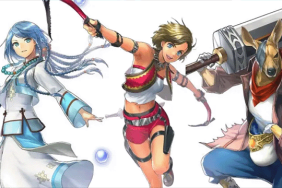Two guys, many girls, and an apothecary place.
Atelier Ayesha Plus was originally on the PS3 and is just the latest in the long-running Atelier series that goes back to the PSOne in Japan and PS2 in the rest of the world. In each is the story of a young woman, an alchemist of some sort, traveling the world in search of new materials with which to make all manner of things: potions and accessories, bombs and baked goods, like people do in those old-time modern-yet-medieval days of future past.
And this one's no different. The story revolves around Ayesha, a shy introverted girl who always appears to travel alone (even when everybody goes with her, she's alone in every cutscene) on the hunt for that special something to bring back her "spirited away" sister, Nio. She meets up with plenty of new companions and her old friends, like Ernie, the sweet delivery boy who blindly flirts with Ayesha; Nanaca, who wanders with her cows and protected by her always-serious brother, Juris; Harry, the creepy mustached guy who runs the local shop; and all the other anime characters that represent strong or uncaring or nervous, all of them itchy to hide from the camera on travel days.
Seriously, one look at the characters gives away their personality almost immediately. These people would be awful poker players, which is a shame for the story, because that means an otherwise interesting story of a naive girl searching for her (possibly dead or just disappearing) sister has a lot of promise goes without a truly interesting character to take it there. The dialog, for one thing, is some of the most bland I've ever read and heard.
Even when there's voice acting involved, the majority of characters are flat and devoid of any emotion, and I can think of three that are almost so completely verbally interchangeable that they're so listless. I sort of like Ayesha in her journey, but she's as deep as a handful of sand on a glass table. I really tried to pay attention to what everybody’s saying, but that led to the second notable problem: the story is disjointed and made difficult to follow by the open-world-ish nature of progression.
With so many named characters, it's no wonder that it's difficult to follow. The gameplay is designed for open travel to allow players to determine their own routes, which I really appreciate in an RPG like this, but it leads to a lot of awkward and out-of-order conversations between characters. And there's no straightforward way to tell where the next goal actually is; there's a "tasks" log that helps, but the tasks are jumbled together and the list doesn't help point to a location. With a game designed around a time limit of three years, and each journey and alchemy session taking a number of days to complete, time can go by quick, and it would be nice to be made more aware of what needs doing.
The only moments when time seems not to move is when Ayesha picks up a new book, which in turn teaches new alchemy and allows for more items. Conversations are pretty short, so they don't take any time or pass days painfully like kidney stones. Picking roots and materials, of all things, spins the clock hands by a lot. But reading through a massive book, in an ancient language, that teaches and imbibes the secrets of hidden (and even forbidden) knowledge… well, that takes no time at all. *shrug* Video games are weird.
On the other side of the coin, the mechanics are simple and engaging. Actually crafting items is explained thoroughly, and the system of selecting which items go in at which time (and in a roundabout way, how much of each item goes in with what potency) gives an authenticity instead of basic "I wanna make this one" crafting. There's plenty of items to create, everything from new ingredients and uncommon power-up knickknacks to bombs and healing items. There's some superfluousness, mostly because certain items are good for cash rewards from begging townspeople and work in battle, but it's neat to have the choice between ointments or a danish for HP recovery.
Speaking of battle, only two people can travel with you into battle (so only three people fighting), which makes you really think about your choices. Should you have an all-out assault and power team to back up Ayesha? Or load her up with bombs and attack spells while having tanks as backup? With Ayesha being in every team and being the only one who can use items (and thus the holder of revival potions), it's a legitimate choice to make and takes some significant time to change should you have to do so. That takes a trip back to the nearest town which takes two or three in-games weeks to reach, choose somebody new, and go back to the field or cave you need to explore.
Characters do move a little stiff during conversations, but they look wonderful on the Vita, and the basic designs of enemies aren't too bad to encounter often. They can wear on you if you're not a fan of how they look—lots of wolves, bears, and flying squirrels out in them fields—but I liked them. They're both adorable and anime-scary, and fit with the big-eyed aesthetic wonderfully. The music does tend to loop a lot, but they're not bad background tracks, both tolerable and forgettable.
Even with the story's odd consistency and dialog was translated by an all-work-no-play intern, the mechanics make up the difference and make this a fun time-waster. If you need an RPG with the intensity of a teddy bear and the face of… well, that same teddy bear, you could find yourself exploring with Ayesha and company for as long as it takes you. Don't mind me, I'm still trying to find more books to read to make more bombs. Because… y’know, bombs.
-
Looks great, sounds great
-
So many items to alchemy!
-
Story is interesting
-
Too bad the dialogue is so dry
-
Disjointed, inconsistent storytelling
Atelier Ayesha Plus Screens
-
Atelier Ayesha Plus Screens #1
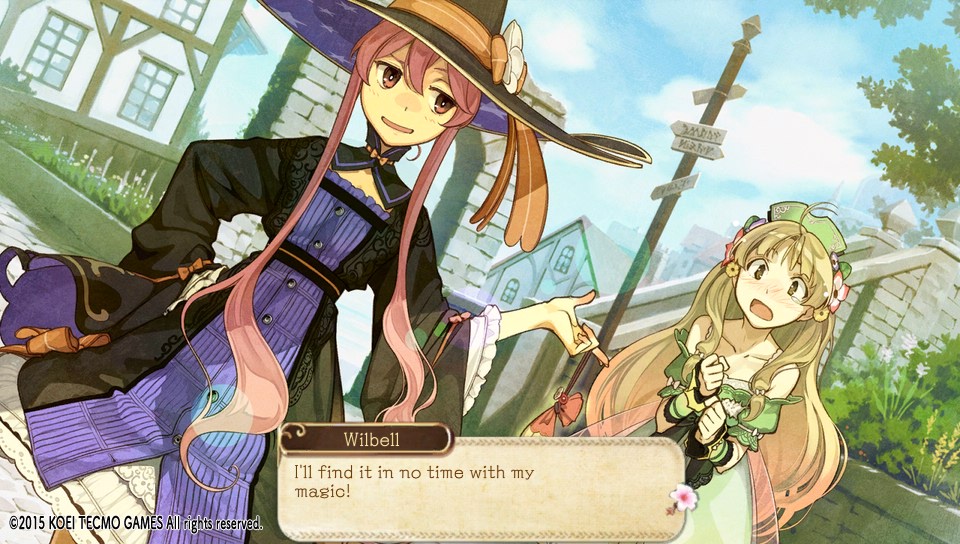 (Click to enlarge)rn
(Click to enlarge)rn -
Atelier Ayesha Plus Screens #2
 (Click to enlarge)rn
(Click to enlarge)rn -
Atelier Ayesha Plus Screens #3
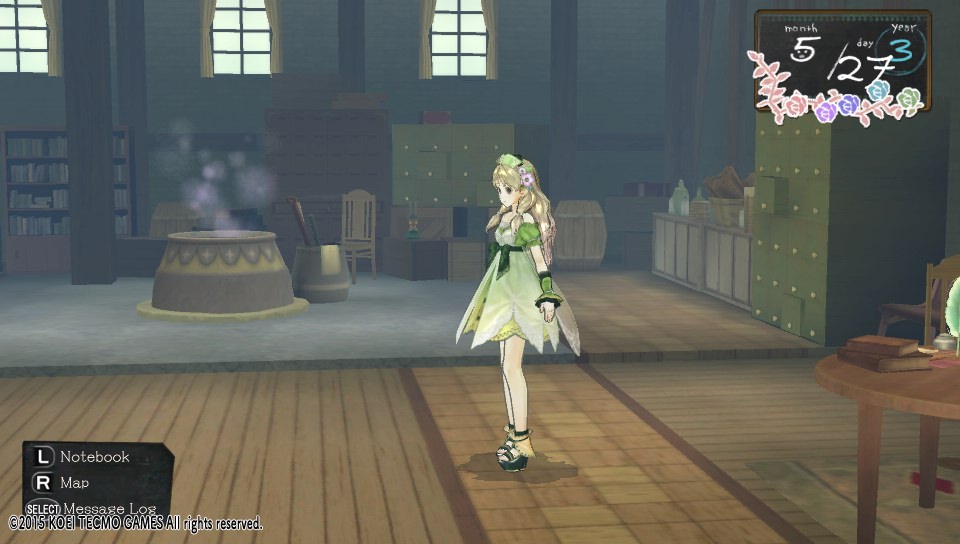 (Click to enlarge)rn
(Click to enlarge)rn -
Atelier Ayesha Plus Screens #4
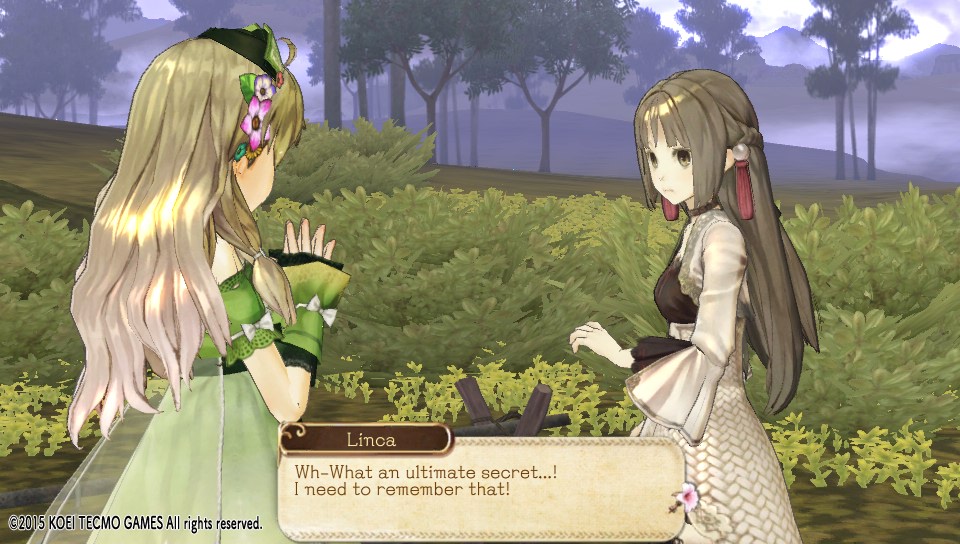 (Click to enlarge)rn
(Click to enlarge)rn -
Atelier Ayesha Plus Screens #5
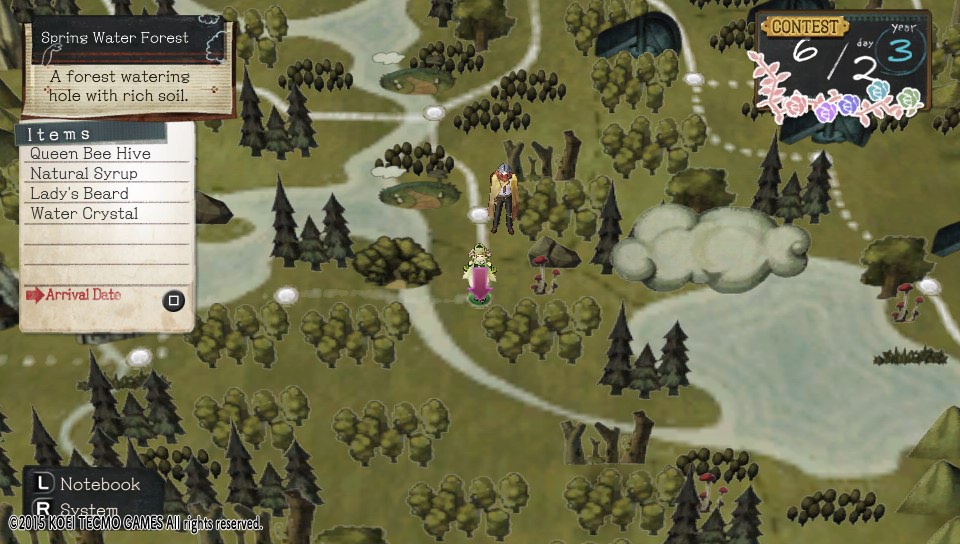 (Click to enlarge)rn
(Click to enlarge)rn -
Atelier Ayesha Plus Screens #6
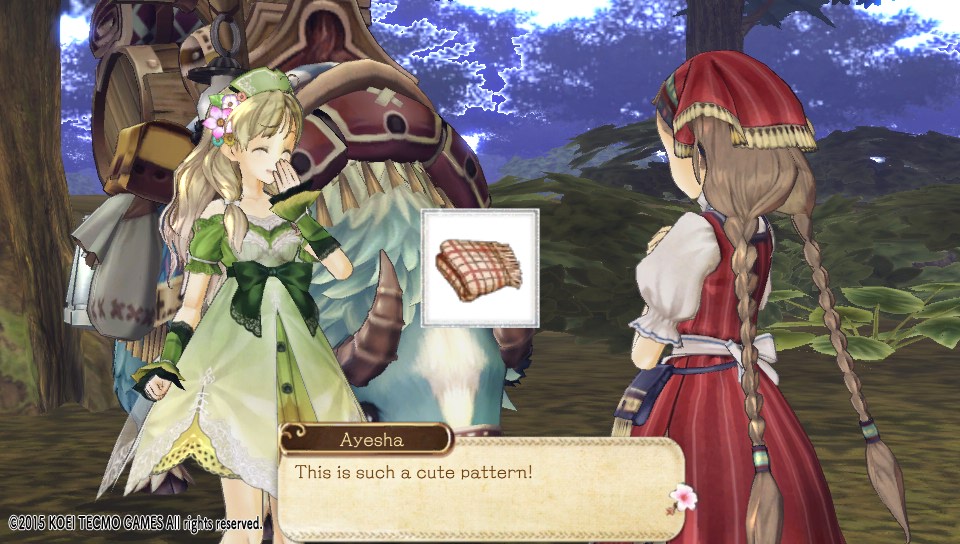 (Click to enlarge)rn
(Click to enlarge)rn -
Atelier Ayesha Plus Screens #7
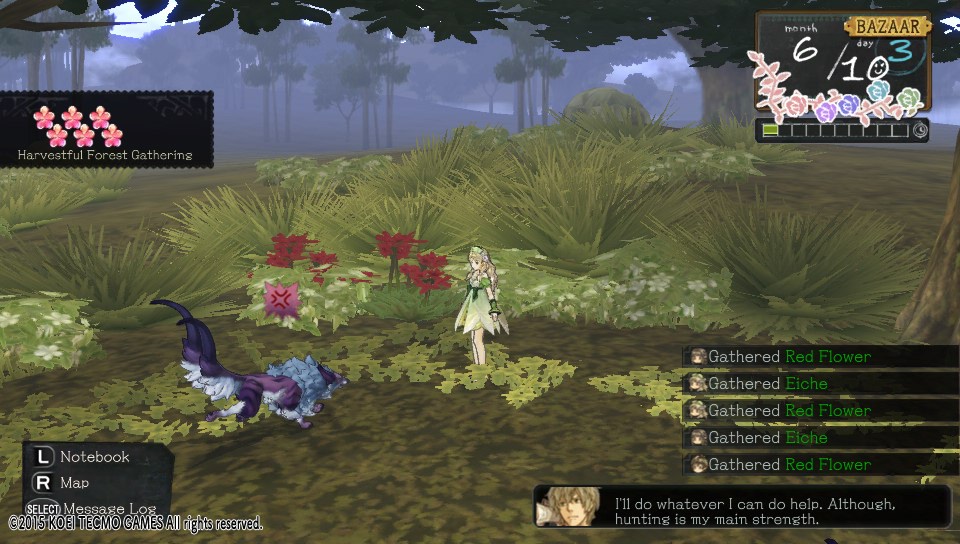 (Click to enlarge)rn
(Click to enlarge)rn -
Atelier Ayesha Plus Screens #8
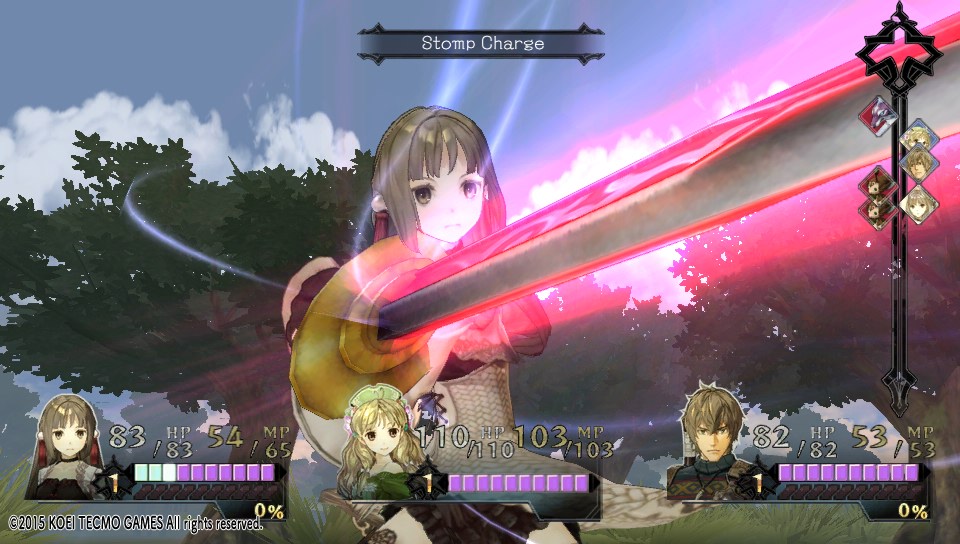 (Click to enlarge)rn
(Click to enlarge)rn -
Atelier Ayesha Plus Screens #9
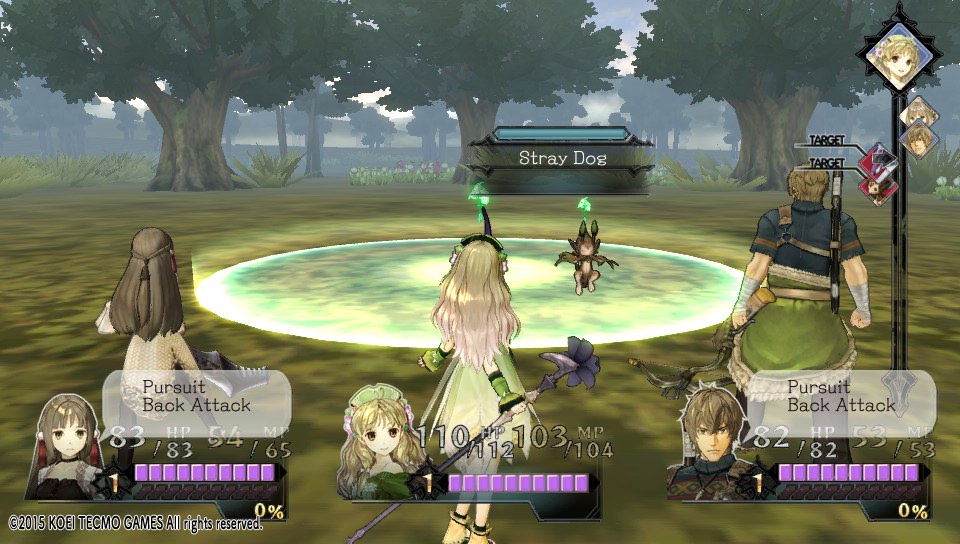 (Click to enlarge)rn
(Click to enlarge)rn -
Atelier Ayesha Plus Screens #10
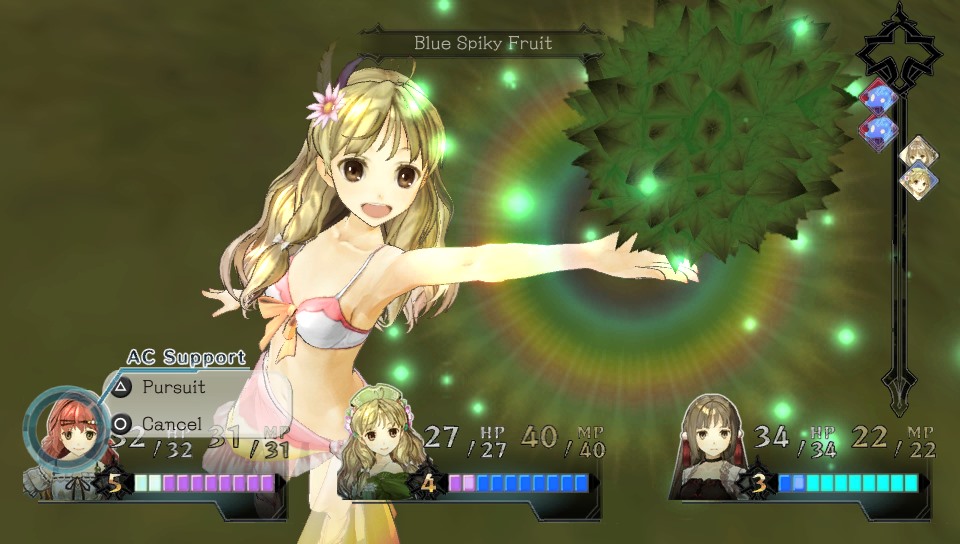 (Click to enlarge)rn
(Click to enlarge)rn -
Atelier Ayesha Plus Screens #11
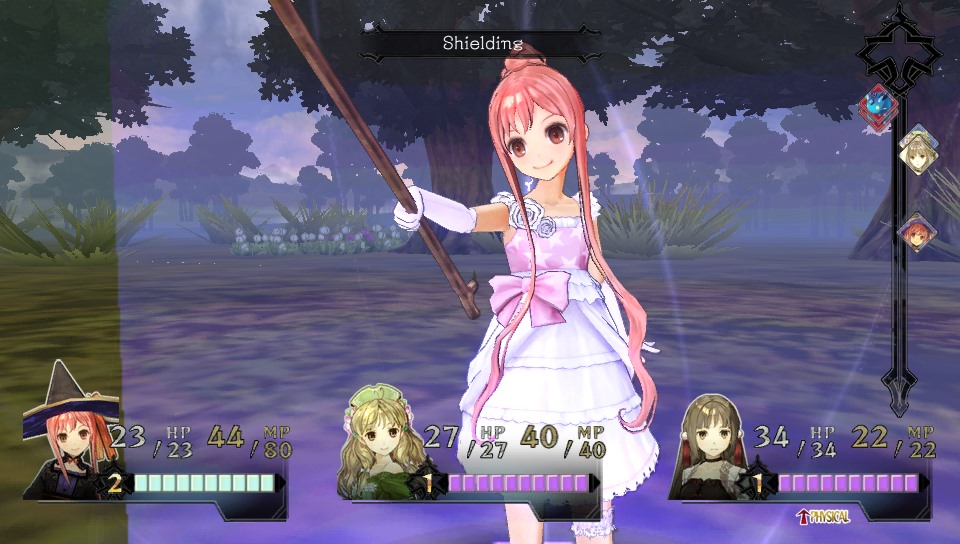 (Click to enlarge)rn
(Click to enlarge)rn







